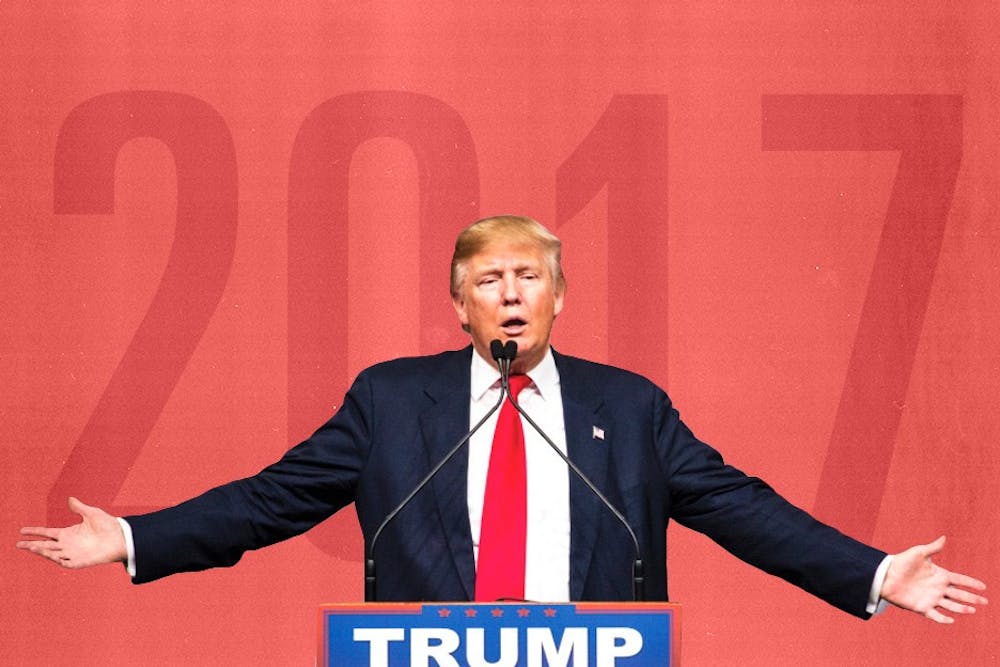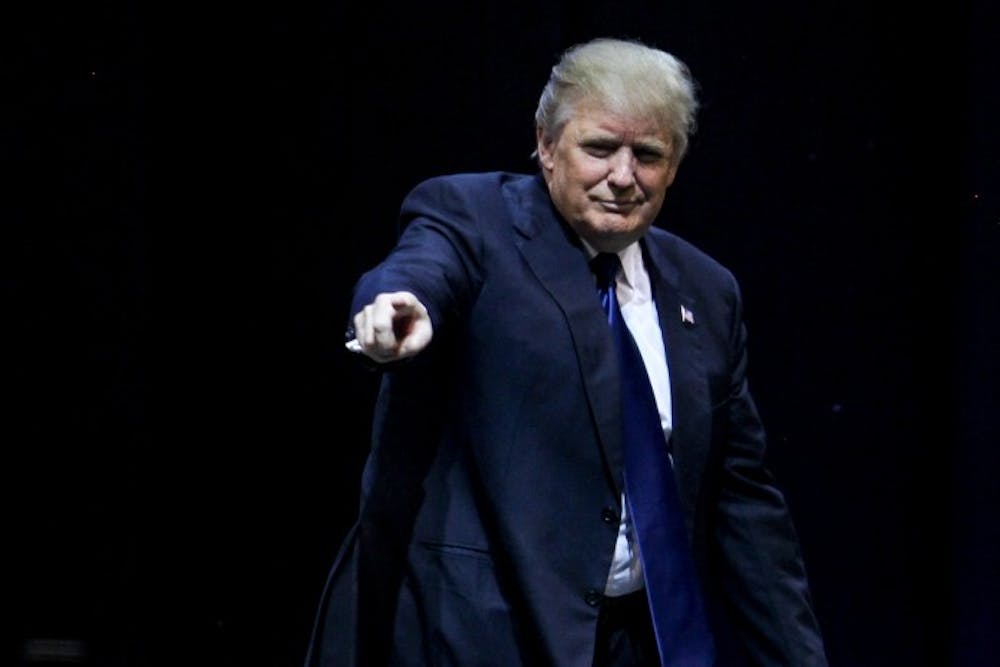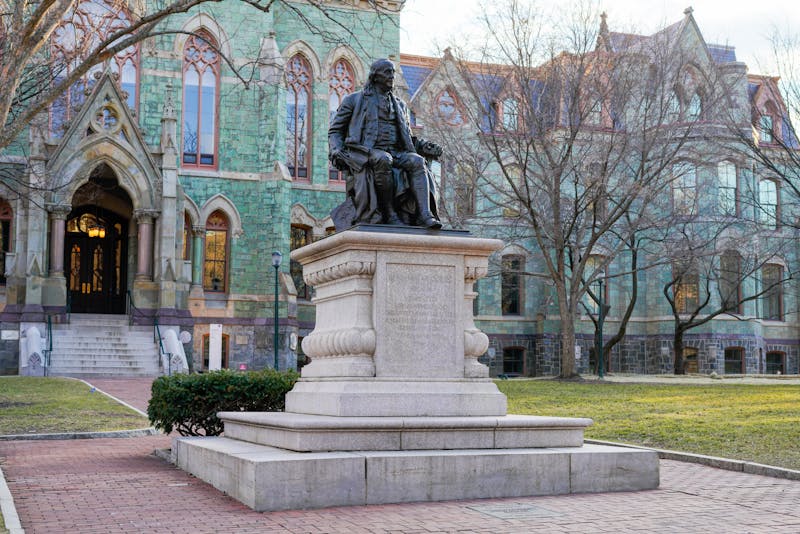
This year marked the first time that Penn had a graduate in the country’s top office. And regardless of what students, alumni, or faculty thought about President Donald Trump’s first year, the Penn brand has inevitably entered the national discussion surrounding Trump’s administration, personal background, and combative late-night tweets.
Throughout the year, the 1968 Wharton graduate repeatedly referred to his business degree as evidence of his intelligence and proof that the media was actively making him “look more uncivil than [he is].” The former real estate mogul also invoked Penn’s brand in various policy discussions, referring to Afghanistan as “the Wharton school of finance for terrorists” in private remarks to The Washington Post.

Donald Trump, pictured here at a rally in Manchester, N.H. during the presidential campaign, became the first Penn graduate to reach the White House after a stunning election victory last year.
Trump's relationship to Penn has come under scrutiny
While Trump continues to flaunt his Wharton degree, his actual legacy at the school remains much murkier. An investigation undertaken by The Daily Pennsylvanian in February found that even though Trump has never corrected the widely-reported claim that he "graduated first in his class," academic records and dozens of his classmates say he was a mediocre student at best. In fact, even though a handful of his classmates say they remember Trump talking in real estate classes “with a heavy New York accent,” a majority of his peers note that they don’t even remember him being in the school.
Trump’s post-graduation links to the school are also somewhat obscure. In the 1980s, when Trump stood out among Penn alumni as a celebrity and successful businessman, the University Board of Trustees nominated him to the prestigious Wharton Board of Overseers. Archives, documents, and other reporting also show that decades before he entered politics, Penn was actively courting the real estate mogul for donations.
The current Penn administration took a markedly different approach during his rise to the presidency. President Amy Gutmann stayed silent on Trump throughout his campaign, choosing only to break her silence on the controversial alumnus in January this year, when she condemned the president’s first proposal for the travel ban as “injurious to our work and inimical to our values.” Three days after Trump's inauguration, he wasn't even listed on Penn's list of "notable" alumni involved in government. (The list updated with his name online after The Daily Pennsylvanian noticed the omission.)
Trump drops the Penn brand more frequently — and more defensively — than other alumni typically do, but he is not the only Quaker who has entered the political spotlight in 2017. Trump’s three oldest children, who all graduated from Penn, have also been hurled into influential positions and have found themselves at the center of national controversies.
While 2000 Wharton graduate Donald Trump Jr. has become a subject of controversy for his implication in the ongoing probe into the 2016 Trump campaign’s links to Russia, 2004 Wharton graduate Ivanka Trump has been repeatedly criticized and satirized for what critics call her “complicity."
Trump’s eldest daughter, who has been described by her University classmates as polished, removed, and “destined for success," was appointed by her father to take on an official role in the White House in March. As the assistant to the president, an unpaid job, Ivanka Trump has met with foreign dignitaries and lobbied Congress, but has done little in the way of advocating for women’s rights and environmentalism — both of which were causes she championed during her father’s campaign.

Other notable Quakers became embroiled in the Trump administration
Outside the Trump family, several other notable Penn alumni have also been tapped to join the Trump administration. In July, Jon Huntsman Jr., the former Utah governor, diplomat, and 1987 College graduate, was formally nominated by Trump to become the U.S. ambassador to Russia.
While the two former Quakers have had public spats before, they both share the distinction of coming from two of Penn’s most notable families. Like the President, Huntsman Jr. was also relatively unknown during his time at Penn, though he later became one of the University’s most important alumni, serving as a University trustee from 1996 to 2001 and is now listed as a trustee emeritus.
Amid all the different alumni who have populated the Trump administration, one Quaker has emerged as a growing thorn in Trump’s side. U.S. Deputy Attorney General and 1986 Wharton graduate Rod Rosenstein has taken on a pivotal role in the Justice Department’s Russia probe, which Trump has described as a "a total fabrication" and "a witch hunt." Rosenstein’s name will continue appear in headlines in 2018, though his reputation as an undergraduate at Penn was decidedly more understated.
In an exclusive interview with The Daily Pennsylvanian, Rosenstein discussed his role in the Russia probe, his interactions with Trump, and how he spent his days on campus.
The Daily Pennsylvanian is an independent, student-run newspaper. Please consider making a donation to support the coverage that shapes the University. Your generosity ensures a future of strong journalism at Penn.
Donate






